
Elachista argentella is a moth of the family Elachistidae found in all of Europe, except the Balkan Peninsula.
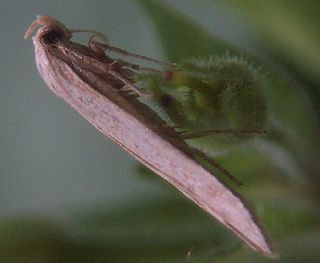
Elachista rufocinerea is a moth of the family Elachistidae found in Europe.
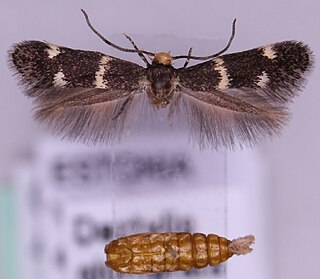
Elachista luticomella is a moth of the family Elachistidae. It is found in most of Europe.

Elachista maculicerusella is a moth of the family Elachistidae found in Europe.
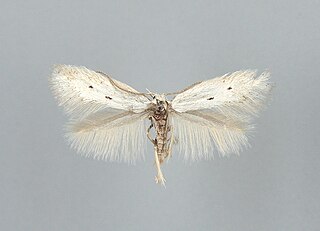
Elachista triatomea is a moth of the family Elachistidae found in Europe.

Elachista eleochariella is a moth of the family Elachistidae found in Europe and North America.

Elachista albidella is a moth of the family Elachistidae, described by William Nylander in 1848. Its wingspan ranges from 9–10 millimetres (0.35–0.39 in).The head is white. Forewings are white, costa and sometimes dorsum suffused with fuscous; plical stigma large, elongate, black; an angulated fuscous fascia beyond middle, angle acutely produced towards apex; small fuscous costal and dorsal spots near apex. Hindwings are rather dark grey.The larva is greenish-grey, more yellowish anteriorly; head dark brown.

Elachista alpinella is a moth of the family Elachistidae found in Europe and North America.

Elachista apicipunctella is a moth of the family Elachistidae found in Europe. It is found in all of Europe, east into northern Russia.
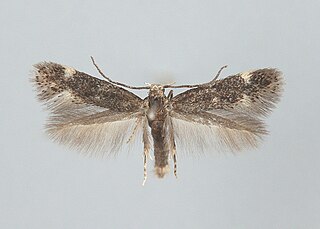
Elachista humilis is a moth of the family Elachistidae found in most of Europe.
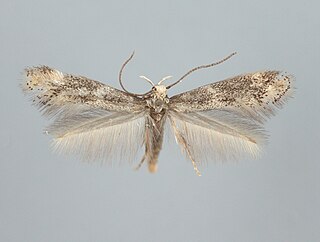
Elachista canapennella is a moth of the family Elachistidae found in Europe.

Elachista freyerella is a moth of the family Elachistidae that is found in all of Europe, except the Balkan Peninsula. It is also found in North America.

Elachista albifrontella is a moth of the family Elachistidae found in Europe.
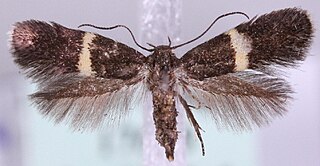
Elachista unifasciella is a moth of the family Elachistidae found in Asia and Europe.
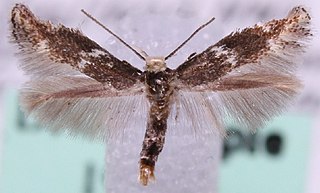
Elachista stabilella is a moth of the family Elachistidae found in Asia and Europe.

Elachista obliquella is a moth of the family Elachistidae found in Europe.
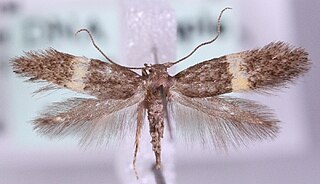
Elachista gangabella is a moth of the family Elachistidae. It is found in all of Europe, except the Iberian Peninsula.

Elachista consortella is a moth of the family Elachistidae. It is found in most of Europe, except most of the Balkan Peninsula, Poland, Latvia and Finland.

Elachista cinereopunctella is a moth of the family Elachistidae found in Europe.
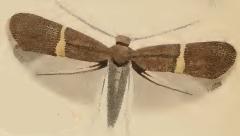
Elachista bisulcella is a moth of the family Elachistidae that is found in Europe.



















